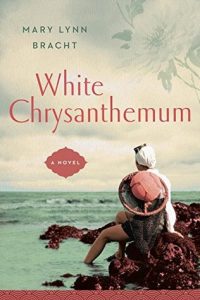
The Front de l’Indépendance is determined to print the truth free from Nazi control in 1943 Belgium. After being threatened by Gruppenfuhrer August Wolff, journalist Marc Aubrion and colleagues agree to put out a pro-Nazi issue of Nazi propaganda La Soir. Instead, they intend to put out an anti-Nazi satire issue, a “Faux” Soir, effectively condemning them to death. Based on a true story, this novel is told from the perspective of the street urchin chosen as gopher and pet by Aubrion, who gives Helene, a girl pretending to be a boy for safety sake, missions for her fellow street urchins to support their endeavor. Helene’s perspective oversteps her boundaries of knowledge throughout the book, making Dear Reader wonder why the author chose her as the 1st person narrator. Ramzipoor does brilliantly include a Nazi government official in the Faux Soir caper, with the inevitable question of where his loyalty lay, and credible gay characters, one of whom outshines the main character. The twist at the end feels delayed—it seems as though that information would have been given right up front, making the timing awkward and the twist a bit anti-climactic. Despite its flaws (unrealistic dialogue, over the top characters) in the craft, Ramzipoor is a natural storyteller, and in choosing a unique tale from the oft-drawn-from well of the WWII era, she has presented an unforgettable story of unexpected heroes where the lesbians survive. I was fortunate to receive this fascinating debut novel from the publisher Park Row through NetGalley.
 Adrienne leaves an abusive relationship and divorce in Chicago and buys a fixer-upper in Florida, where she starts her new life of independence on the Gulf. A box of eloquently written letters from a WWII soldier in her attic sets Adrienne on a journey to friendship, potential romance, and matchmaking. She exposes decades-old secrets, changing lives and mending relationships while building strong bonds with her new “family.”
Adrienne leaves an abusive relationship and divorce in Chicago and buys a fixer-upper in Florida, where she starts her new life of independence on the Gulf. A box of eloquently written letters from a WWII soldier in her attic sets Adrienne on a journey to friendship, potential romance, and matchmaking. She exposes decades-old secrets, changing lives and mending relationships while building strong bonds with her new “family.” Maddie and Ellis are trapped by money—his family’s—while a second world war rages in Europe, as he cannot serve in the war due to a medical condition. When his father kicks them out of his family home for their unseemly behavior, Ellis determines to win back his love by redeeming the family name from his father’s loutish attempt to prove the Loch Ness monster. In Scotland, Maddie is alienated by her husband, whose loyalty is to his best friend and their travel companion Hank. She discovers more about her marriage and their friendship than Ellis does about Nessie, and she begins to question everything about her life, and even her husband’s “medical condition.” As Ellis and Hank display boorish behavior toward the locals, Maddie finds comfort in their compassion for her. She ends up caring for an injured employee of their inn, endearing herself to the innkeeper and his employees.
Maddie and Ellis are trapped by money—his family’s—while a second world war rages in Europe, as he cannot serve in the war due to a medical condition. When his father kicks them out of his family home for their unseemly behavior, Ellis determines to win back his love by redeeming the family name from his father’s loutish attempt to prove the Loch Ness monster. In Scotland, Maddie is alienated by her husband, whose loyalty is to his best friend and their travel companion Hank. She discovers more about her marriage and their friendship than Ellis does about Nessie, and she begins to question everything about her life, and even her husband’s “medical condition.” As Ellis and Hank display boorish behavior toward the locals, Maddie finds comfort in their compassion for her. She ends up caring for an injured employee of their inn, endearing herself to the innkeeper and his employees. 16-year-old Hana dives with her mother as Jeju’s female sea divers “haenyeo” during the Japanese occupation of Korea. One day, she is taken by a Japanese soldier, sacrificing herself to protect her little sister, and ends up as a “comfort woman” for Japanese soldiers in Manchuria. Paralleling her story is her younger sister’s story as a grandma, recounting her life after Hana’s kidnapping, always expecting a reunion with her sister one day.
16-year-old Hana dives with her mother as Jeju’s female sea divers “haenyeo” during the Japanese occupation of Korea. One day, she is taken by a Japanese soldier, sacrificing herself to protect her little sister, and ends up as a “comfort woman” for Japanese soldiers in Manchuria. Paralleling her story is her younger sister’s story as a grandma, recounting her life after Hana’s kidnapping, always expecting a reunion with her sister one day.